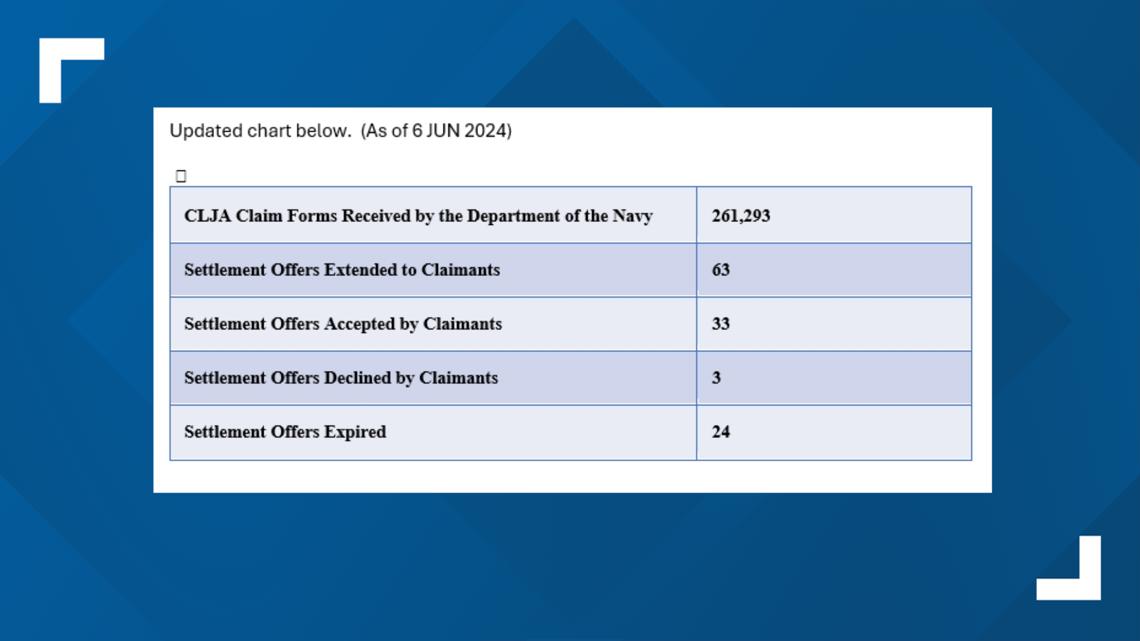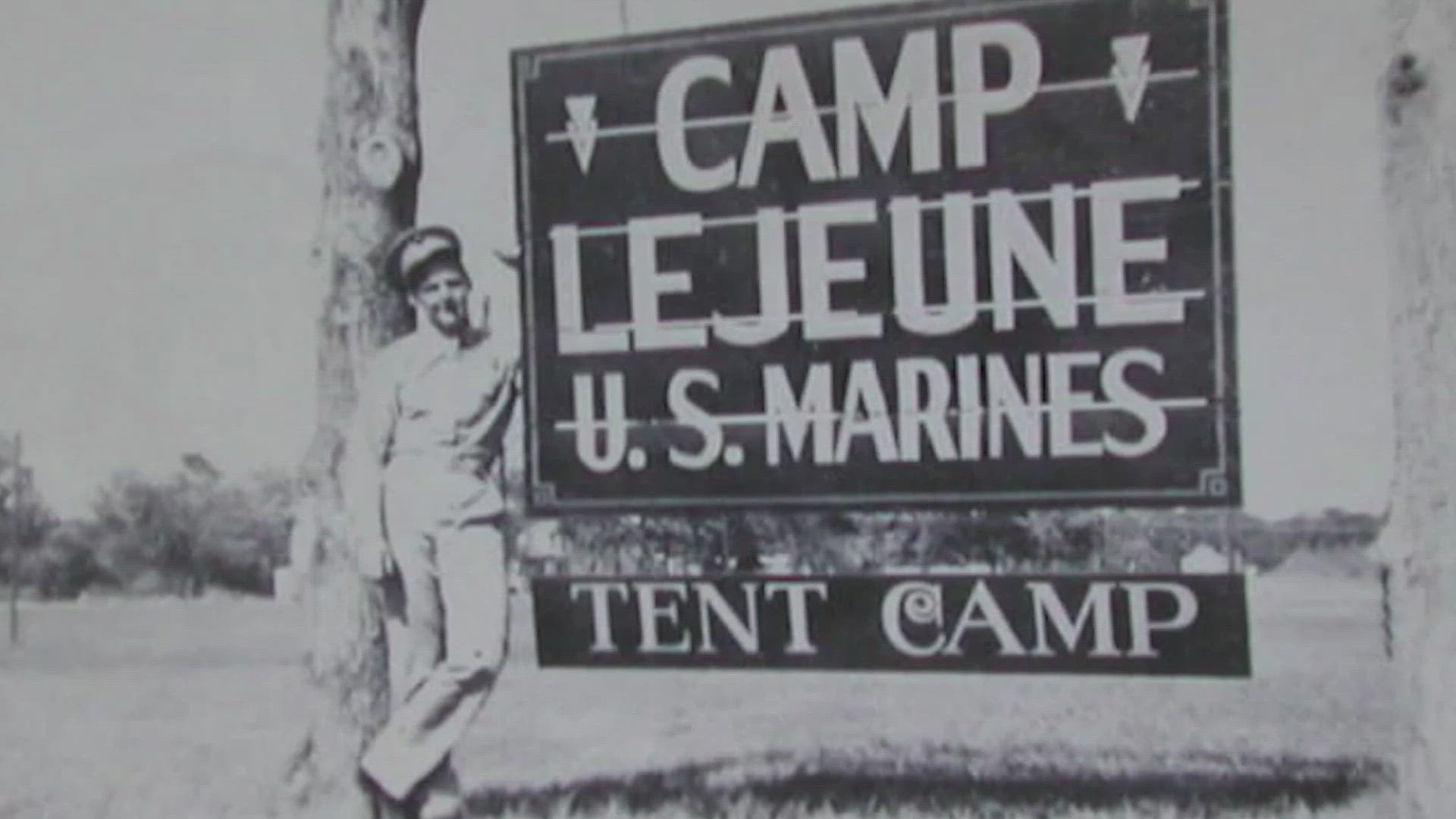JACKSONVILLE, Fla. — “You kind of get a sense or feeling is this really going to happen? You know, how many more hurdles,” Michelle James said. “How many more obstacles are they going to be?”
Michelle James lost her husband, who served at Camp Lejeune, to cancer.
“We believe it is because of the toxic water,” James said.
James and Karen Swindler, whose husband also died after serving at Camp Lejeune, filed claims as soon as the Camp Lejeune Justice Act was signed into law in 2022. But two years later both are still waiting. No action has been taken on their claims.
“So every time we think that we're making progress, it's like, two steps forward, ten steps backward,” James said. “So, the Department of Justice, the Department of Navy, they've been fighting tooth and nail basically, to try and discredit that a lot of these claims were due to the water.”
The legislation opened a two-year window to sue. You may be eligible to file a claim if you or your loved one was exposed to contaminated drinking water for at least 30 days between August 1, 1953 and December 13, 1987 and suffered cancer or other health issues. The deadline to submit a claim is August 10, 2024.
According the government, the water at the North Carolina Marine Corps base was tainted by industrial solvents and other hazardous chemicals. By the government's own estimate, one million military and civilian staff members and their families may have been exposed to contaminated drinking water at Camp Lejeune.
According to a Navy spokesperson more than 261,000 claims have been filed so far and only 63 settlements offered to claimants. The Navy says it reviews each claim on a case-by-case basis and is committed to resolving everyone as fairly and expeditiously as possible.


“I didn’t ever dream in a million years we’d still be here. It feels like we’re still at the beginning,” James said. “I know we have moved a lot forward. But it just feels like it's a slow pace.”
New legislation that has bipartisan support has been introduced to help remove barriers prohibiting veterans from securing benefits they are entitled to receive.
If passed, the Camp Lejeune Justice Corrections Act would clarify the right to jury trials, cap attorneys' fees and expand jurisdiction to help alleviate the backlog of cases.
“Please contact your politicians, congressmen, your senators, and let them know that you support this new bill to have the amendments for Camp Lejeune changed because the community is suffering right now. We've had so many deaths,” James said. “I've got a widow right now. I don't know how long she's got left to go. And it really saddens me because, you know, she's been fighting and she's waiting, but she may never live to see justice for her husband.”
James started Lejeune Empowered Advocacy for Widows group. She invites all Camp Lejeune widows to join her.

